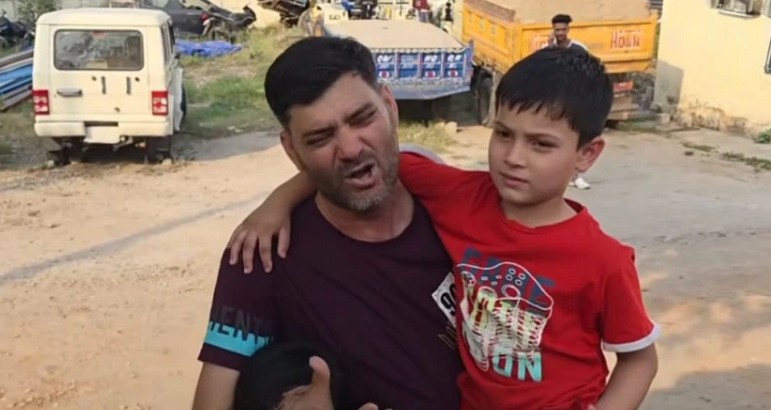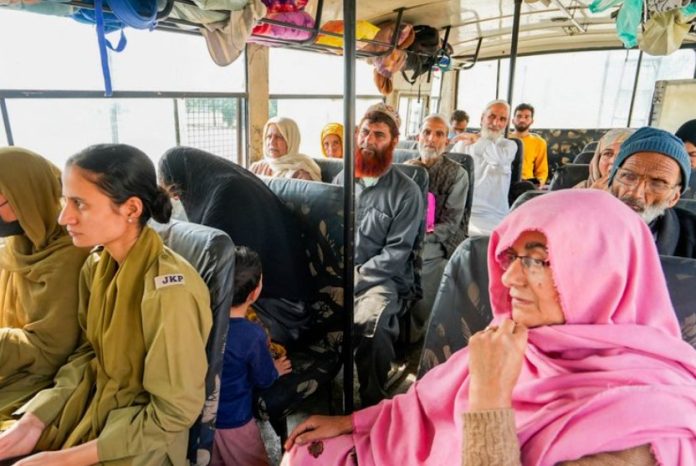The intricate and often emotionally charged process of repatriation of Pakistani nationals continues to unfold, marked by a recent instance where a former Jammu and Kashmir (J&K) policeman, along with his eight siblings, were transferred to Punjab despite a stay order issued by the High Court. This development adds a complex layer to the ongoing narrative of cross-border movements and legal interventions, raising questions about the implementation of judicial directives and the humanitarian considerations involved in such cases. The transfer of these individuals to Punjab, a state bordering Pakistan and serving as a key transit point for repatriation, occurred notwithstanding a legal challenge aimed at preventing their immediate deportation.
The fact that a former policeman from Jammu and Kashmir is among those being repatriated introduces a unique dimension to this particular case. Details regarding his tenure with the J&K police, the reasons for his dismissal or departure from service, and the circumstances leading to his intended repatriation to Pakistan are crucial for a comprehensive understanding of the situation. His past association with law enforcement in India might carry specific implications for his case and the legal proceedings involved.
The presence of eight siblings alongside the former policeman further underscores the human element of this situation. Their collective transfer highlights the familial bonds that transcend national borders and the potential social and emotional upheaval associated with repatriation, especially when it involves a large family unit. The reasons for their presence in India and the legal basis for their intended deportation would be central to the legal arguments presented before the High Court.
The issuance of a stay order by the High Court typically implies that the court has found prima facie merit in the petitioners’ arguments against the repatriation and has directed a temporary halt to the deportation process pending further judicial review. Such orders are often granted to allow the petitioners an opportunity to present their case more fully and for the court to examine the legal and factual aspects of the matter in greater detail.

The transfer of the former J&K policeman and his siblings to Punjab, despite this stay order, raises serious questions about the adherence to judicial directives by the concerned authorities. It suggests a potential conflict between administrative actions and judicial pronouncements, which could have significant implications for the rule of law and the rights of the individuals involved. The reasons behind this apparent disregard for the High Court’s order would need to be thoroughly investigated and clarified.
Punjab, being a state that shares a direct border with Pakistan, often serves as a logistical hub for the repatriation of individuals who have crossed the border, whether inadvertently or otherwise. The Attari-Wagah border crossing is the primary land route used for such transfers. The shifting of these nine individuals to Punjab likely indicates that the authorities intend to proceed with their repatriation through this established channel, notwithstanding the legal hurdles raised in the High Court.
The legal basis for the repatriation of these individuals would be a key factor in the High Court’s decision to issue a stay order. The petitioners may have argued that they are Indian citizens, that their deportation would violate their fundamental rights, or that the due process of law has not been followed in their case. The fact that one of them is a former policeman of J&K could lend further weight to arguments of Indian citizenship or a right to remain in India.
The humanitarian aspects of this case also warrant careful consideration. The forced separation of a large family and their transfer to a country where they may no longer have strong ties or support networks can have profound social and emotional consequences. The legal proceedings would likely have also considered these humanitarian concerns alongside the purely legal arguments.
The actions of the authorities in transferring these individuals despite a High Court order could potentially be viewed as contempt of court, which could have further legal ramifications. The High Court may take suo moto cognizance of the matter or act upon a petition filed by the affected individuals or their legal representatives, potentially leading to further directives and scrutiny of the administrative actions taken.
This case highlights the complexities and sensitivities involved in matters of nationality, border control, and repatriation. It underscores the importance of adhering to legal procedures and respecting judicial orders, even when dealing with individuals who may be deemed foreign nationals. The rule of law requires that all individuals, regardless of their background or circumstances, are treated fairly and in accordance with the due process established by the courts. The transfer of the former J&K policeman and his eight siblings to Punjab, despite a stay order, adds a concerning chapter to this ongoing saga, raising critical questions about the implementation of judicial directives and the protection of individual rights in such sensitive cases. The legal and humanitarian implications of this situation will likely continue to unfold in the coming days and weeks.


